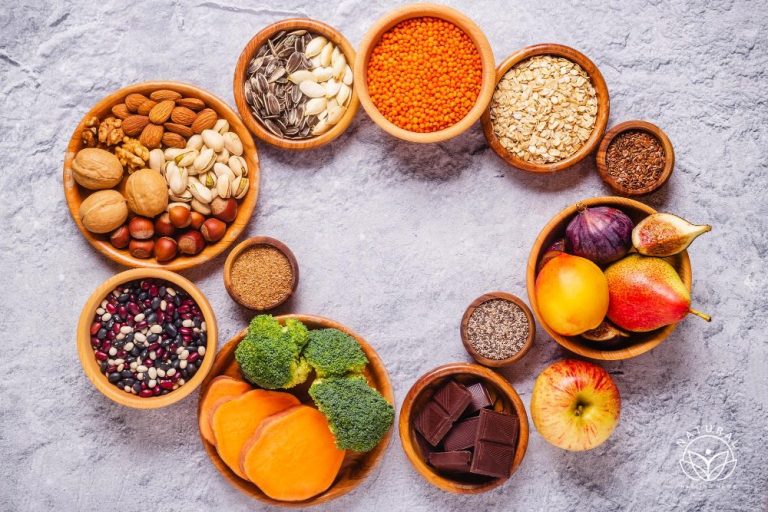Sugar: The Sweet Enemy of Your Health

A family cooks together in the kitchen, laughing and joking as they make their favorite holiday cookies. The mother pours a cup of sugar into the mixing bowl, and the children eagerly await their turn to add more.
Sugar seems like the perfect ingredient for spreading holiday cheer. But sugar is also the sweet enemy of your health.
Sugar is found in almost everything we eat, from breakfast cereals to slices of bread to cookies and candy. And while a little sugar here and there may not seem like a big deal, the truth is that sugar is contributing to some major health problems.
Sugar is enemy of your health
Excess sugar consumption has been linked to obesity, type 2 diabetes, heart disease, and more. And yet we continue to eat more and more sugar every year.
If we want to protect our health, we need to start being more aware of the sugar in our diets and making an effort to reduce our intake. In this article, we’ll explore some of the ways sugar is harming our health and what we can do to cut back on our sugar consumption.
It is no secret that our society has a love affair with sugar. We add it to our coffee, sprinkle it on our cereal, bake it into our cookies, and even put it in our ketchup. Sugar is everywhere, and it’s no wonder we consume so much of it. It is sweet, it is addicting, and it is cheap.
But what some may not realize — or want to admit — is that sugar is also one of the leading causes of weight gain.
leading cause of weight gain
When we eat foods that are high in sugar, our body releases insulin. Insulin is a hormone that helps to regulate blood sugar levels. When there is too much sugar in our blood, insulin helps to store it in our liver and muscles in the form of glycogen.
Glycogen is basically sugar that has been converted into a form that our body can use for energy. But, our body can only store so much glycogen. Once our glycogen stores are full, the excess sugar is then stored as fat.
Sugar not only causes our body to store fat, but it also increases our appetite. Sugar causes a spike in our blood sugar levels, which gives us a burst of energy. But, that energy is short-lived and is quickly followed by a crash.
This crash makes us feel tired and hungry, and we are likely to reach for more sugary foods to give us a quick pick-me-up. This creates a vicious cycle of eating sugary foods to get energy, only to crash a short time later and crave more sugar.
Sugar is also a major source of empty calories. It contains no essential nutrients, so it does nothing to help our bodies function. In fact, sugar can actually interfere with the absorption of important vitamins and minerals.
Sugar is also very addictive. The more we eat, the more we crave. This, again, can lead to overeating and weight gain.
leading cause of type 2 diabetes
Not only does sugar cause weight gain, but it is also one of the leading causes of type 2 diabetes. Type 2 diabetes is a condition in which the body does not properly process insulin.
When we eat foods high in sugar, our body releases insulin to help process the sugar. But, if we are constantly eating sugary foods, our body becomes overloaded with insulin and is unable to process it properly.
This can lead to type 2 diabetes.
So, if you are looking to lose weight or improve your overall health, cutting sugar out of your diet is a good place to start. Try to limit your sugar intake, and opt for healthier options like fruits and vegetables. Your body will thank you for it.
leading cause of heart disease
The average person consumes about 22 teaspoons of sugar a day, which is more than twice the recommended amount. And that’s not even including the sugar that’s hidden in processed foods.
All that sugar can lead to some serious health problems, including heart disease.
Sugar increases the levels of triglycerides in your blood. Triglycerides are a type of fat that can clog your arteries and lead to heart disease.
Sugar also raises your blood pressure, which puts extra strain on your heart. And it can contribute to weight gain, which puts you at higher risk for heart disease.
So, how can you cut down on sugar and protect your heart? First, take a close look at your diet and see where you’re getting all that sugar. It’s probably hiding in places you least expect, like your morning coffee or that healthy-sounding granola bar.
Try to cut back on sugar gradually. And when you do have sugar, Balance it out with healthier foods like fruits and vegetables. Most importantly, don’t be afraid to ask for help.
leading cause of tooth decay
Tooth decay is one of the most common problems people have with their teeth. When you consume foods or drinks that contain sugar, the bacteria in your mouth convert the sugar into acid.
This acid then attacks the enamel, or hard outer covering, of your teeth. Over time, the acid can break down the enamel and cause cavities, or tiny holes, to form in your teeth.
In addition to causing cavities, sugar can also lead to other dental problems, such as gum disease. Gum disease is an infection of the gums that can damage the soft tissue and bone that support your teeth.
Gum disease is often caused by plaque, a sticky film of food, bacteria, and saliva that constantly forms on your teeth. When plaque is not removed, it can harden and turn into tartar. Tartar is a hard, yellow substance that can only be removed by a dentist or dental hygienist.
If you have gum disease, your gums may become red, swollen, and bleed easily. You may also notice that your teeth are starting to loosen or that your gums are receding.
As gum disease progresses, it can destroy the bone and connective tissue that support your teeth, eventually causing your teeth to fall out.
To help prevent these problems, it is important to consume sugary foods and drinks in moderation and to brush and floss your teeth regularly.
Diet Without sugar
It is important to limit your intake of sugar to help maintain a healthy lifestyle. Too much sugar can lead to weight gain, cavities, and diabetes. It is important to eat sugar in moderation and to choose foods that are low in sugar when possible.
A good way to cut back on your sugar intake is to be mindful of the foods you’re eating and to make sure you’re not eating too much processed food. Try to eat more whole foods and cook at home more often. When you do eat processed foods, read the labels and choose items that have less sugar.
You can also try cutting back on sugar in your coffee or tea. If you’re used to adding a lot of sugar to your drinks, start by cutting back to half of what you normally add. You can also try using a sugar substitute like stevia.
Another way to reduce your sugar intake is to watch out for hidden sources of sugar. Many foods that you wouldn’t expect to be high in sugar are actually quite sugary. For example, salad dressing, bread, and peanut butter can all be relatively high in sugar.
Sugar is everywhere, but that doesn’t mean you have to consume a lot of it. By being mindful of your sugar intake and making some simple changes, you can easily cut back on the amount of sugar you consume.
If you’re struggling to cut back on sugar, talk to your doctor or a registered dietitian. They can help you create a plan that’s right for you.






